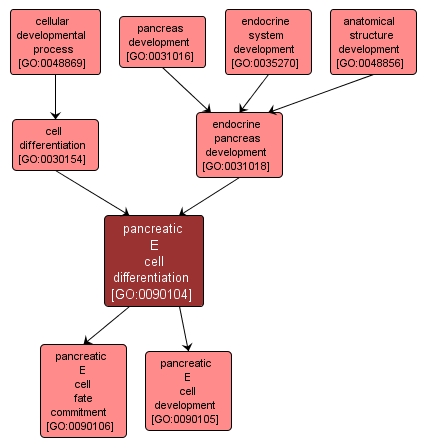GO TERM SUMMARY
|
| Name: |
pancreatic E cell differentiation |
| Acc: |
GO:0090104 |
| Aspect: |
Biological Process |
| Desc: |
The process whereby relatively unspecialized cells acquire specialized structural and functional features of a pancreatic E cell. A pancreatic E cell is a cell in the pancreas that secretes ghrelin. |
|

|
INTERACTIVE GO GRAPH
|














